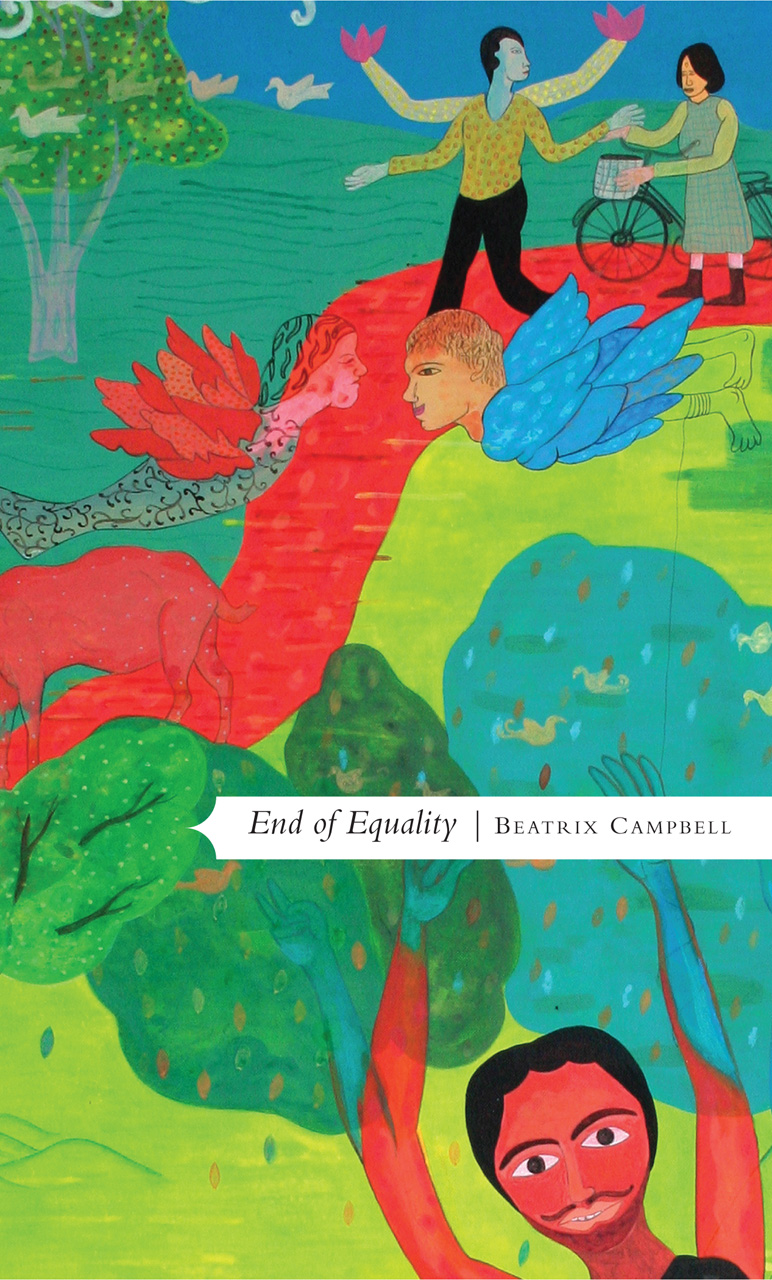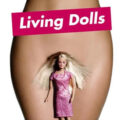The Spectre of Gender Equality

End of Equality
by Beatrix Campbell
Softcover, $9.50
Seagull Books, 2014
In End of Equality, Beatrix Campbell, a British writer and activist, draws upon a career of feminist analysis and agitation to present a brief treatise on gender-based inequality. This book is part of a series called “Manifestos for the 21st Century,” curated by Ursula Owen and Judith Vindal-Hall, which cover issues of human rights, censorship, and dissent. Campbell’s treatise underscores existing feminist theories while contributing a fresh, often harsh perspective on the ever-present sexism that global citizens face in the 21st century. Campbell begins End of Equality with a reference to that most famous of manifestos:
A spectre is haunting the world: the spectre is a woman, any woman, women. All the powers of old Europe and the old world have entered into a holy alliance to exorcize this spectre. Their branding reproach is that women are already equal to men, and if not yet equal, then all but […] Or that equality has already gone too far, that men are unmanned, that it is an offence against nature. By their complacency or their contempt, the holy alliance hails the spectre as if it were already a power in the new world.
The “revolutionary potential” of the working class in Marx’s time correlates to that of feminists today. The consensus view, she writes, is that women are prepared to throw off their chains and rise up. Newspaper and magazine articles, T.V. sitcom premises, men’s rights movements, conservative news segments, and studio films like “Horrible Bosses” assert the (fear-laden) image of a powerful independent modern womanhood unencumbered by centuries of systemic misogyny. This fear of women as a political force however supposes that feminism has already accomplished its work, and that the patriarchy no longer exists. This, Campbell writes, is patently false:
Nowhere have men en masse been persuaded to share power, time, money, resources and respect equally with women. Women did not create this state of affairs, nor did they consent to it. Yet, in the twenty-first century the prevailing faith is that the age of patriarchy is over … and feminism, therefore, is passé.
Campbell covers a lot of ground at a rapid pace in her energetic, slim volume, providing examples of structural sexism along several major themes: money, time, space, and violence. In each of the book’s five chapters, Campbell outlines how wage and time-use inequality persist even in supposed “post-feminist” societies such as the United States and the United Kingdom. Her critique of time-use inequality is particularly compelling. The politics of time, she writes, are a disadvantage upheld by neoliberal capitalism and patriarchy: “the ‘working week’ has been institutionalized in the interests of men unencumbered by duties of care”. This is, perhaps, one reason why Sheryl Sandberg’s call to lean into the traditional work week set by patriarchal standards falls so flat for many women.
Shifting from a macro view to a micro lens, Campbell does lose some amount of command over the subject matter. The examples used to highlight her critique are often disjointed. They fail, at times, to paint a coherent portrait of sexism in its modern form. It feels almost like a carousel ride—as her narrative turns, one catches a glimpse of Page 3 nudes in Rupert Murdoch’s Sun, gendered violence in Mexico’s Cuidad Juárez, and a South Korean female worker protesting inequality by camping on a tall crane for ten months. Individually, each vignette is intriguing, but Campbell never quite connects the pieces into a sharp synthetic analysis.
One particularly strong section is that in which Campbell correlates the veil, or hijab, and cosmetic surgical enhancements. She unites two emotionally fraught and apparently contradictory subjects of feminist debate into what may strike some as a particularly innovative analysis:
The built body and the masked body are oddly united in one thing: a pessimistic engagement with masculinity. It is represented as a force to be aroused and managed, or feared and managed—but not changed.
Inchoate images of violence against the body materialize in the act of reading. Both the veiled body and the body as project symbolize society’s need to control and shape the female form. They each perpetuate the devastating assumption that men cannot and will not resist engaging in its objectification and sexualization. Most damning, each implies that men should not be blamed for doing so. This is why the burden is laid upon women: either to cloak their embodied sexuality with swaths of material, or to maintain and perform femininity according to societal norms—at any cost—in the pursuit of acceptance.
The manifesto reaches a satisfying crescendo in the final chapter on sex and violence. Here Campbell infuses her analysis with a visceral anger, aimed at the systems that maintain institutional and individual violence against women and girls. She delves deeply into the double injustice that female (and male) rape victims experience in a patriarchal system. Not only are they physically assaulted, society also fails to pursue any form of justice: only 3% of rapists in the United States will ever see a day in jail [1]. Survivors of gendered violence are enshrouded in a culture of shame and silence: “…no society in the world takes the side of women and children against the perpetrators”.
In her unapologetic assessment, Campbell lays bare a silent truth: rape happens not only because it is part of an intricate system of masculine violence, but also because rapists have almost complete impunity. She teases out nuances of the terminology surrounding sexual violence, and relates the common hesitance to use the term at all—“It wasn’t rape-rape…”—to the systemic impunity that rapists enjoy. Victims fear the shame of admission more than the perpetrators fear the punitive force of justice or law: “the semantics of deciding to not-know and not-care, it is taking the side of perpetrators.” Campbell concludes that validating a survivor’s experience is a “profoundly radical” act that can offer restorative justice and also aid in the process of personal healing.
Beatrix Campbell concludes her manifesto with an appeal to our imaginations, and a return to the revolutionary possibilities of utopian language. She relocates the dialogue of third-wave feminism in the 21st century, revitalizing its main tenets as urgent and necessary. The reader is instructed to imagine a world in which there are men without violence, sex without violence. To imagine a world in which our time, money, and bodies are our own. To see, fully, that these two systems are not independent but intricately laced and supportive of each other. Like Campbell, I want to find out what that world would look like.
[1] “97 of Every 100 Rapists Receive No Punishment, RAINN Analysis Shows”, http://www.rainn.org/news-room/97-of-every-100-rapists-receive-no-punishment, April 2014
About Kelly Baker
Kelly Baker is a non-profit professional who lives and works in Boston. Follow her on Twitter at @kellynorabaker.





